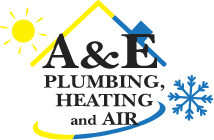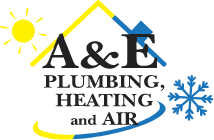It’s crucial to take proper care of your furnace—it provides your Hood River home with the heat you need to stay warm. A simple, but often forgotten, way to keep your furnace in good condition and help provide you with desirable indoor air quality (IAQ) in your Oregon home is to consistently replace or clean the furnace filter.
But what are furnace filters, and why do they play such a critical role in maintaining a properly functioning furnace?
At AEH A & E Plumbing, Heating, and Air, Inc, our experienced team of professionals are always on hand to answer any filter questions you may have as well as to replace or clean your air filter for you.
Importance of Furnace Filters
There are dust particles, dander, and debris sifting through the air in your home. Most of the time, you can’t even see this—but it’s there and you are breathing it.
Your furnace circulates air, and the filter catches the air’s dust and debris, which helps provide optimal indoor air quality.
Dirty air will spread throughout your Hood River home without a clean furnace filter. According to the Asthma Initiative of Michigan (AIM), a common trigger for asthma is household dust. Regular dusting and cleaning will also contribute to a cleaner filter and air, helping those with respiratory issues.
In addition, your filter protects your heating and cooling system as well. Furnace filters remove the dust and debris to also prevent buildup inside your unit. This accumulation can cause system problems and deterioration. Air filters proactively help your heating, ventilation, and air conditioning (HVAC) system continue to operate efficiently.
How a Furnace Heats and Filters Air
Air enters your furnace through your ducts. The heat exchanger then converts the cool air to warm. From there, the warm air cycles back out and forces more cool air into the ducts, repeating the process until your home is properly heated.
Choosing Your Filter
There are various furnace filter options available to you. When selecting a filter, be sure to choose the correct size required for your furnace. Check your manufacturer’s instructions, but if you need help with this, our AEH A & E Plumbing, Heating, and Air, Inc HVAC team would be happy to assist you.
Disposable Filters (Replaced Monthly)
Here are the most common disposable filters:
• Fiberglass filter––This type of furnace filter is typically the most popular and least expensive. However, you will have to replace this furnace filter regularly since it’s disposable, and unfortunately, it doesn’t catch smaller particles very effectively. If you suffer from allergies or asthma, you may want to consider an alternative.
• Pleated filter––Another option is a pleated filter, which is typically constructed from polyester or cotton fibers. This makes it capable of catching smaller particles. Though disposable, this type of filter is considered more eco-friendly than fiberglass filters.
• Electrostatic filter––This filter offers a more advanced cleaning and filtration process compared to other types of filters. As air passes through, the fibers naturally receive a static charge. This charge attracts dust particles, which end up sticking to it. Electrostatic filters are extra tough on pet dander and cigarette smoke.
Permanent Filters (Cleaned Regularly)
Here are the most common permanent filters:
• Reusable electrostatic filter––A washable version of the electrostatic filter could be a better fit if you would rather clean your filter instead of replace it routinely. Though it initially costs more than the disposable version, this filter can last up to eight years, saving you money in the long run.
• High-efficiency pleated filter––This filter offers between four and five inches of thick synthetic wool for extra protection. Pleated filters are often used in hospitals as they are considered the best filters for those with respiratory issues.
MERV Ratings of Furnace Filters
MERV (Minimum Efficiency Reporting Value) is an energy-efficiency rating system for filters and can typically be found on both the filter and its packaging. The range of the MERV ratings are from 1 to 16 with the higher rating being the most efficient. Generally, the thicker the filter is, the more efficient it is.
Though you might assume the thickest filter is the best filter, you should consider what types of filters are most compatible with your furnace. Thick filters can hinder the airflow of some furnaces, which could cause them to perform less efficiently, so you need to be sure your filter is perfectly matched for your particular furnace.
If you’re not sure which filter is best for your furnace, contact one of our AEH A & E Plumbing, Heating, and Air, Inc furnace specialists today and we will help you figure it out.
When to Replace or Clean Your Filter
It’s necessary to replace or clean your filter so you can breathe in your home without inhaling contaminants. Most disposable air filters should be replaced every one to three months, but check the manufacturer’s instructions for protocol specific to your furnace.
On the other hand, if you have a reusable filter, in most cases, you should clean it monthly. Check it regularly to be sure there isn’t too much buildup, especially if you or someone living in your home is more sensitive to dust particles and other allergens.
Contact Your Furnace Specialists at AEH A & E Plumbing, Heating, and Air, Inc
Our AEH A & E Plumbing, Heating, and Air, Inc furnace specialists want you to have clean air to breathe in your home. We are here to provide high-quality maintenance visits and any type of indoor air quality support for you here in Hood River, OR. If you have any questions regarding your furnace, call us today at 541-645-8188 or request service online.
Topics:

